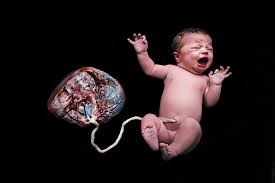October 30, 2024
In a landmark study, researchers from Australia’s Mater Research Institute at the University of Queensland have uncovered an unexpected link between the placenta and maternal mental health, revealing that certain stress-responsive pathways in the placenta could influence anxiety and depression in pregnant women. This discovery holds the potential to reshape our understanding of pregnancy-related mental health and may inspire new treatment avenues for these conditions.
The team, led by Professor Vicki Clifton, focused on glucocorticoid receptors in the placenta and identified 13 distinct isoforms, or receptor variations, which react differently to maternal stress levels. Specifically, they found that one isoform in particular responds to heightened cortisol levels—a stress hormone—by inducing an inflammatory response in the placenta rather than suppressing it, as typical glucocorticoid receptors do. This insight challenges the long-standing assumption that stress receptors exclusively reduce inflammation.
“We have discovered that the placenta has 13 different isoforms of the glucocorticoid receptor, with one isoform expressed in the presence of maternal stress, anxiety, and depression that activates an inflammatory response in the placenta in the presence of high cortisol concentrations,” Professor Clifton explained in an interview published in Brain Medicine.
This discovery illuminates the complex link between stress and inflammation in pregnancy, offering a biological explanation for why stress-related mental health issues might manifest differently during pregnancy. The findings also suggest that the placenta plays an active role in moderating stress responses, impacting both maternal mental health and fetal development.
Another groundbreaking aspect of the study is the role of fetal sex. Professor Clifton’s research points to significant differences between male and female fetuses in their placental response to maternal stress. This finding raises the possibility of personalized, sex-specific approaches to prenatal care.
“Presently, we do not consider the sex of the fetus in obstetrics,” Clifton stated. “I would like to see sex-specific medicine for pregnancy complications, for the care of preterm neonates, and for the care of newborns.”
The team’s next step involves exploring the impact of placental inflammation on maternal brain function to understand if and how placental responses to stress contribute to increased symptoms of anxiety and depression in pregnant women. Such research could provide new insights into perinatal mental health care and pave the way for targeted therapies that directly address placental function.
By shedding light on the placenta’s unexpected influence on maternal mental health, this study may spark a transformation in both prenatal and mental health care, underscoring the need to consider the placenta as a key player in maternal well-being during pregnancy.











